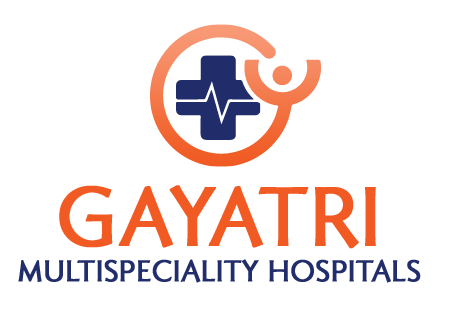The department of orthopedics is completely focused and concerned with the musculoskeletal system of the body. The orthopedic surgical team at Gaytri Multi-specialty hospitals provides a wide range of treatments for any orthopedic issues in Ongole be it an emergency break in the bone or a chronic condition such as arthritis or other such disorders.
There are many times when an orthopedic surgeon is needed to work in conjunction with other specialists to provide a holistic treatment to the patient usually in the case of blunt trauma or emergency. Gayatri Hospitals is well equipped to handle such situations with a team of leading surgeons, ready to cater to every requirement of the patient.
When it comes to the musculoskeletal system at an orthopedic hospital in AP, it not only caters to the muscles and bones but it goes deep into the ligaments and tendons, and joints. Diagnosing an issue and providing treatment for the same as well as preventing the illness in the first place is extremely crucial when it comes to orthopedic problems.
The department at Gayatri Multispeciality hospital is headed by Dr. N. B. Harsha Vardhan Reddy, a reputed orthopedic surgeon in the Prakasam district. The entire team focuses to provide non-surgical rehabilitation first and exhausting all such options before proceeding with surgical intervention.
It is a common misconception that orthopedic or orthopedic surgeons are only required by people who play a lot of sports or by elders whose bones have degraded slowly. However, the orthopedic specialist in Ongole takes care of a lot of bones and joints in the body, such as:
- Hand
- Wrist
- Foot
- Ankle
- Shoulder
- Knee
- Hip
- Back
- Neck
What to expect during an appointment?
During the first appointment, the orthopedist will work on diagnosing the individual's condition. This can include conducting a physical examination and taking X-rays.
In certain instances, the specialist might carry out in-office or request extra tests to confirm the diagnosis.
How is diagnosis done?
The process of diagnosis will likewise include the orthopedist:
- getting some information about the individual's symptoms
- reviewing the individual's clinical record to gather more data about their clinical history and overall health
- carrying out a physical examination
- reviewing any X-rays that the individual underwent before the appointment
The orthopedist may likewise order additional diagnostic tests. These may include:
- MRI scan
- CT scan
- Bone scan
- an ultrasound
- Nerve conduction studies
- Blood tests
In-office procedures
An orthopedist might perform an in-office procedure to help diagnose and treat specific musculoskeletal conditions.
X-rays are "the most common and widely available diagnostic imaging technique."
An orthopedist will often perform X-rays in-office, permitting them to diagnose specific conditions during an individual's appointment. They may likewise deliver injections, like corticosteroid injections to relieve inflammation and perform ultrasound scans.
Some acute injuries, like fractures and dislocations, need an orthopedist to manipulate the bone or joint and immobilize it utilizing a splint, cast, or brace.
Treatment choices
In addition to in-office treatments, an individual's orthopedist might recommend one or more of the following to treat chronic musculoskeletal conditions:
- over-the-counter anti-inflammatory meds
- rehab and physical therapy
- home exercise programs
- injections
- acupuncture
- mobility aids
- surgery, when different therapies fail
When to see an orthopedic doctor?
You might have to see an orthopedic doctor if you have:
- pain or swelling in a bone, joint, or muscle that is persistent, repeating, or doesn't respond to home care
- a significant decline in the mobility or range of movement of a joint, like your knee, elbow, or shoulder
- difficulty performing your day-to-day activities
- nerve-related symptoms, like numbness and tingling or a "pins and needles" sensation in your arms or legs
- an injury to a bone or joint that needs the attention of a specialist
Post-surgical physiotherapy plays an important role in the world of orthopedics. The right lifestyle, the right diet along with timely and accurate physiotherapy helps in the speedy recovery of the patient. All in all, there is nothing to fear when it comes to your bones & muscles, expert treatment is in your city.
